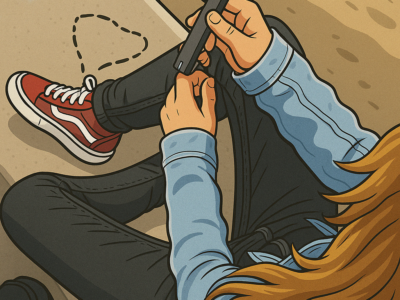No one goes into a casino for the first time imagining that they will one day commit crimes because of it, or hurting the ones they love for the thrill of another game. But for some people, this quickly becomes a reality. When people first start out gambling, it seems like a fun way to relax, or maybe an exciting way to win some extra money. When fun turns to addiction however, that thrill becomes compulsion, and that win tends to become loss again and again. This is when people get desperate and will do nearly anything to regain that feeling of the first time they stepped into a casino.
Unfortunately, addictions almost always affect more than just the person who is suffering from the addiction, it can also affect family, friends, and even strangers. One of the ways addictions affect others is when those addictions push the addict to commit crimes. Most of these crimes are related to obtaining money to gamble or to pay gambling debts. Common crimes related to compulsive gambling include fraud, forgery, embezzlement, larceny, shoplifting, burglary and petty theft. As compulsive gambling increases in severity, there is a correlation of increased criminal activity. Understanding this relationship requires a review of gambling and crime rate statistics:
More than two-thirds of compulsive gamblers report committing crimes directly related to gambling, and approximately 40 percent of compulsive gamblers report the only crimes they commit are related to gambling
80 to 90 percent of individuals who attend Gamblers Anonymous report engaging in illegal acts to get money for gambling
63 percent of Gamblers Anonymous members reported writing bad checks, and approximately 30 percent reported stealing from work
Nearly 70 percent of gamblers assessed as having a severe problem reported engaging in illegal acts relating to gambling, compared to roughly 26 percent assessed to have moderate severity
A study of Gamblers Anonymous members found that 57 percent had stolen to finance their gambling with a combined financial impact of theft equaling $30 million
Compulsive gamblers are arrested seven times more frequently than non-gamblers
And sadly, compulsive gambling can often damage the lives of those closest with the addict. Statistics show that in families where a parent gambles compulsively, domestic violence, including child abuse is much more prevalent. Even when gambling and domestic violence don’t coincide, children of parents with gambling addiction are more likely to develop depression, substance use and behavioral problems later in life.
Gambling addiction doesn’t only affect the addict, it affects the people closest to them such as family and friends, and the prevalence of crime can even affect innocent bystanders or businesses. One of the best ways to prevent gambling-related crime and abuse is to help people overcome their gambling addiction.
If you suspect that you or a loved one may be suffering from problem gambling, there is a lot of helpful information, resources, and an online chat on the National Council on Problem Gambling website, or you can call or text their hotline at 1-800-522-4700.


